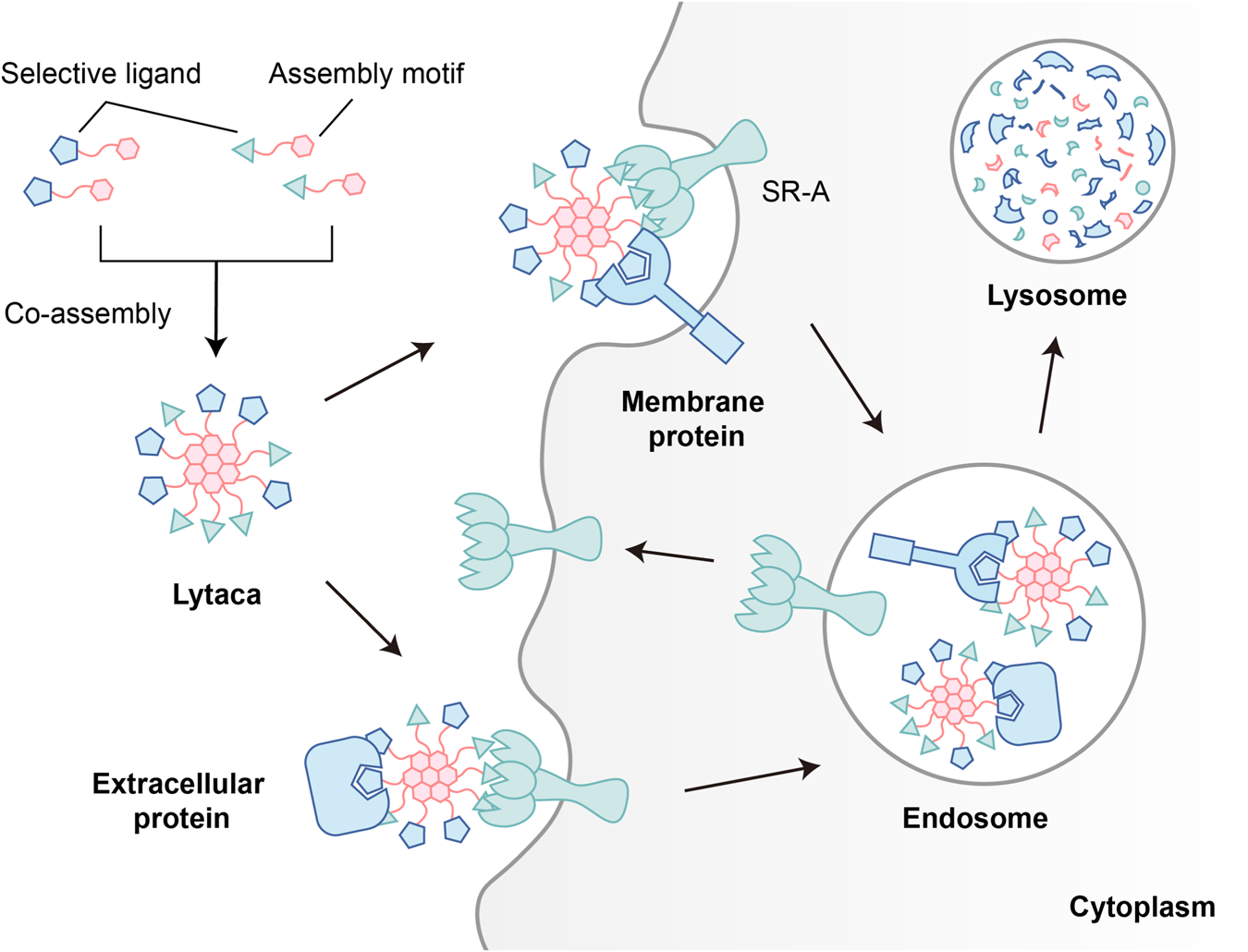Zhongxin Xu, Changdong He, Xinyu Li, Lu Huang, Bo Cheng, Suwei Dong*



Current cancer treatments face significant challenges, including limited tumor specificity and drug resistance. Enzyme-instructed supramolecular peptide assembly targeting lysosomes offers a promising strategy to address these issues; however, self-assembling units that withstand lysosomal conditions are still scarce. Herein, we present a versatile glycopeptide incorporating glucuronic acid and glucose that undergoes glucuronidase-triggered self-assembly to form nanofibers, leading to lysosomal membrane permeabilization (LMP) in cancer cells. Mechanistic studies revealed that in glucuronidase-overexpressing HepG2 cells, glycopeptide assembly induces cytoskeletal disruption and apoptosis. The involvement of carbohydrate-binding receptor in enhancing the cellular entry of glycopeptides and improving proteolytic stability highlights the importance of glycan modification. Notably, combining this glycopeptide with cisplatin or Adriamycin results in synergistic cytotoxicity, including in drug-resistant cancer cell lines. These findings establish a novel, LMP-inducing glycopeptide scaffold for developing targeted approaches for cancer treatment.
所有内容 © DongLab ·版权所有。 地址:中国 100191 北京市海淀区学园路 38 号 E-mail:dongs@hsc.pku.edu.cn) 电话:010-82805931